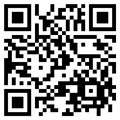Conflict mineral procurement policy
1. Purpose:
To prevent conflict minerals from the Democratic Republic of Congo and its neighboring regions from being used for our company's raw materials, implement the company's policy on conflict minerals, improve the conditions of the electronic supply chain, support regional material plans, and enable legal trade in the Democratic Republic of Congo and its neighboring countries in the future.
2. Scope:
Applicable to the composition investigation of all metal materials within the company's procurement scope.
3. Responsibilities:
3.1 R&D Department: The supplier is responsible for conducting a preliminary assessment of whether the metal materials contain conflict minerals during sample acceptance.
3.2 Quality Department: In response to the commitment of the EICC and GeSI (Global Initiative for Electronic Sustainability) joint working group to improve the conditions of the electronic supply chain, we do not accept mining activities that can fuel conflicts. The Dodd Frank Protection Act requires disclosure and reporting of the information and sources of tin, tantalum (columbite), gold, and tungsten used in products.
3.3 Resource Department: Select suitable suppliers based on material requirements, and assist the Quality Department in requesting suppliers to investigate whether conflict minerals are used in the supplied materials and their sources.
4. Definition:
4.1 Conflict minerals: The mining of rare metals such as cassiterite, black tungsten, tantalum, iron ore, and gold in the Democratic Republic of Congo and surrounding countries and regions has caused serious human rights and environmental problems. Most of the mining activities in these areas are related (funded) to armed groups in conflict, leading to long-term instability in the region, hence they are called "conflict minerals".
4.2 Neighboring countries: internationally recognized countries that share borders with the Democratic Republic of the Congo Note: The Conflict Free Smelter Assessment Project also lists Kenya as a neighboring country.
4.3 Conflict free metals in the Democratic Republic of the Congo: products that do not contain mineral conflicts and do not directly or indirectly finance the armed forces of the Democratic Republic of the Congo or neighboring countries
4.4 Policy on conflict minerals: Do not support or use metals extracted from armed conflicts, illegal mining, and poor working environments, known as "conflict minerals". Suppliers should investigate the presence of metals such as gold (Au), tantalum (Ta), tin (Sn), tungsten (W), etc. in their products and confirm their sources.
5. Job responsibilities
5.1 The R&D department shall transmit the specifications and related requirements of the required materials to the resource department based on the actual product needs, and request the resource department to find suitable suppliers to submit samples for approval. And disclose the risk assessment information on whether this material contains conflict minerals to the Resources Department and Quality Department.
5.2 The Resource Department selects suitable suppliers based on the specifications and quality requirements of the R&D department for materials, and requires suppliers to send samples for confirmation. At the same time, the "Conflict Free Metal Report Template" survey form and the "Non Conflict Mineral Guarantee Letter" that needs to be signed are forwarded to the suppliers for investigation of conflict mineral information on the materials sent and for making commitments and guarantees on the materials. And submit the supplier's signed 'Certificate of Non use of Conflict Minerals' and investigation results to the Quality Department to determine whether the materials meet the requirements of conflict free metals in the Democratic Republic of Congo.
If the results of the investigation meet the requirements of conflict free metals in the Democratic Republic of Congo, this information will be passed on to the R&D and resource departments.
If the investigation results indicate the use of conflict minerals from the Democratic Republic of Congo and its surrounding areas in the materials, the supplier is required to provide a written analysis and immediately stop using the materials and conflict minerals from the Democratic Republic of Congo and its surrounding areas. A new source of minerals should be selected and effective evidence should be provided to prove that the new minerals meet the conflict free metal requirements of the Democratic Republic of Congo, and corresponding improvement and prevention measures should be formulated to comply with the conflict free metal requirements of the Democratic Republic of Congo; At the same time, suppliers are required to sign a 'Conflict Mineral Non Use Guarantee'
5.5 The company's policy on conflict minerals; Not supporting or using metals derived from armed conflicts or illegal mining, known as' conflict minerals'. The company's suppliers should investigate the presence of metals such as gold, tantalum, tin, tungsten, etc. in their products and confirm their sources.
6. Reference documents
Dodd Frank Protection Act
7. Related Forms
7.1 Conflict free Mineral Survey Form
7.2 Non use of Conflict Minerals Guarantee


